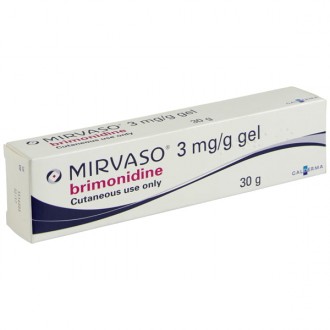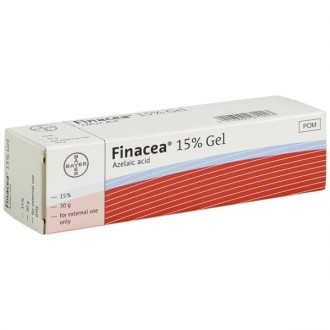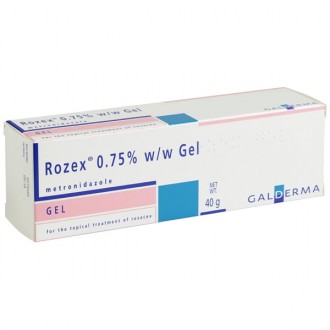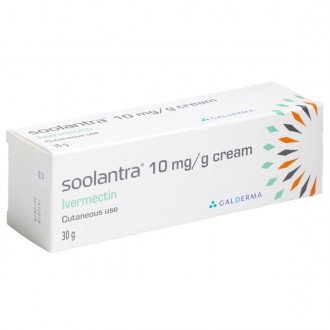Acne Rosacea is a long-term skin condition that mainly affects the face. It’s more common in women and people with lighter skin, but symptoms can be worse in men. Rosacea may cause redness (blushing) across the face that comes and goes and a burning or stinging sensation when using water or skincare products.
Although it cannot be cured, there are a range of treatments for rosacea to reduce symptoms and manage the condition. Pharmacy Online has a range of gels and creams to reduce rosacea symptoms. Start your consultation today.
What is Rosacea?
Rosacea is more than just a red face; it's a chronic skin condition that affects millions of people and is characterised by facial redness, small and superficial dilated blood vessels, papules, pustules, and swelling.
It typically starts with a tendency to blush or flush more easily than others and progresses to persistent redness in the central part of your face, especially the nose. Small, red, pus-filled bumps may appear during flare-ups, and may fluctuate in intensity over time. These symptoms can cause significant psychological, social, and occupational problems if left untreated.
Understanding that rosacea is a chronic condition requiring long-term management is key to reducing symptoms. While its exact cause remains a mystery, researchers believe it could be due to a combination of hereditary and environmental factors. The good news? With the right approach, you can control the signs and symptoms and live comfortably with rosacea.
Triggers and causes of rosacea
Rosacea's exact cause is unknown, but several factors can trigger or exacerbate the condition, common triggers include:
- Sun exposure
- Stress
- Hot drinks
- Caffeine
- Hot or cold weather
- Spicy foods and alcohol
- Certain skincare products
Identifying and avoiding your personal triggers is a key part of managing rosacea. Each person's triggers are unique, so what affects someone else may not affect you. Keeping a symptom diary can be an effective way to pinpoint your specific triggers.
Differential diagnosis: what else could it be?
Rosacea can often be mistaken for other skin conditions, like acne or eczema, which can lead to confusion in diagnosis. So, if you've been struggling with persistent redness, bumps, or pimples on your face that don't respond to topical acne treatments, it could be rosacea.
Other conditions that can mimic rosacea include seborrheic dermatitis, which causes redness and flaking, especially on the scalp and eyebrows; and lupus, which can cause a butterfly-shaped rash on the face. Even allergic reactions can sometimes present with symptoms similar to rosacea: facial redness, swelling, and sometimes bumps that resemble the redness and pustules seen in rosacea.
If you suspect rosacea, don't suffer in silence. Consult a dermatologist or one of our pharmacists for a diagnosis. An accurate diagnosis often involves a thorough examination of your skin, a review of your medical history, and sometimes skin biopsies or blood tests to rule out other conditions.
Rosacea symptoms
Rosacea's symptoms can vary widely from person to person, some people with rosacea might only experience redness, while others have acne-like breakouts.
Typically, symptoms include persistent facial redness (erythematotelangiectatic rosacea), inflammation and swollen red bumps (phymatous rosacea), papules and pustules (papulopustular rosacea), sensitive skin, and small visible blood vessels.
Some people with rosacea may also experience eye problems (ocular rosacea), like dryness, irritation, and swollen, reddened eyelids. In severe cases, particularly in men, the nose may engorge, becoming swollen and bumpy from excess tissue, a condition known as rhinophyma.
These symptoms can be cyclic, meaning they may flare up for a period of weeks to months and then diminish before flaring up again. While these symptoms can certainly be frustrating and even embarrassing, it's important to remember that you're not alone.
Many people with rosacea feel self-conscious about their skin, but there are effective ways to manage the symptoms and minimise their impact on your daily life.
Diagnosing Rosacea
Diagnosis is primarily based on the visible signs and symptoms. However, diagnosing rosacea involves more than just a glance at your skin. It requires a comprehensive evaluation by a healthcare professional, usually a dermatologist.
During your appointment, expect a detailed discussion about your symptoms, lifestyle, and any factors that seem to trigger flare-ups. There's no specific test for rosacea, so diagnosis is typically based on the history of your symptoms and a physical examination of your skin.
The doctor might ask questions about your family's medical history, any medications you're taking, and your routine skin care. In some cases, tests might be conducted to rule out other conditions, such as lupus or an allergic skin reaction.
Try to be open and honest with your healthcare provider about your symptoms and how they're affecting your life. The more information they have, the better they can help you manage your condition.
Treatments for rosacea
Treatment for rosacea is about managing symptoms to reduce their impact on your daily life and preventing flare-ups from occurring. Options include topical medications to reduce redness and inflammation, oral antibiotics for more severe cases, and laser treatment to reduce visible blood vessels.
Topical medications:
If you're dealing with rosacea, topical medications can be your first line of defense. They mainly aim to reduce the inflammation and redness on your skin. You might find creams or gels, like Mirvaso gel, Finacea Gel, Rozex Gel, and Soolantra cream, particularly helpful.
To see the best results, use these treatments regularly and exactly as your healthcare provider or our pharmacist instructs. This consistent application will help you manage your rosacea symptoms more effectively.
Oral antibiotics
When your rosacea symptoms are more severe and topical treatments aren't enough, oral antibiotics can be a game changer. They tackle the inflammation from within your body, offering relief from those persistent symptoms. However, remember these are usually short-term solutions, prescribed for a limited period to balance effectiveness with safety.
Laser therapy
Laser therapy can help reduce visible blood vessels, a common symptom of rosacea. This gentle, non-invasive procedure uses targeted laser light to shrink these vessels, significantly enhancing your skin's appearance. The process usually requires several sessions for the best results, and the specific treatment plan will be customised for you by your dermatologist, based on the severity of your condition.
Surgical procedures
In rare, more extreme cases of rosacea, such as advanced rhinophyma where your nose becomes enlarged, surgery might be an option to consider. This more intensive treatment is aimed at reshaping your nose and reducing excess tissue. Keep in mind, surgery is generally viewed as a last resort and is typically recommended only when other treatments haven't provided the desired relief. Deciding to go ahead with surgery involves careful consideration of your unique situation and needs.
Side effects
It's important to be aware of side effects with medicine to treat rosacea. While these treatments aim to improve your condition, they can sometimes lead to skin irritation, dryness, or increased sensitivity to sunlight, particularly with certain topical creams or gels.
If you're taking oral medications, you might experience gastrointestinal discomfort or a heightened sensitivity to sunlight. If you're concerned about side effects, or you have an allergic reaction to the medicine, seek urgent medical attention.
Alternative management strategies
Apart from medical treatments, managing your lifestyle can help reduce symptoms of rosacea. Identifying and avoiding your personal triggers that make your rosacea symptoms worse is key. This might mean changing your diet, skincare routine, or habits. Using sunscreen, wearing a hat when outside, and choosing skin-care products carefully can all help.
Lifestyle changes can also help manage rosacea:
- Avoiding known triggers
- Using gentle skincare products
- Protecting the skin from extreme temperatures and sun exposure
If you're struggling with rosacea, access fast and effective treatment online from Pharmacy Online. Following a brief online consultation with one of our doctors or pharmacists, you'll be prescribed the right treatment specifically for you, which will be packaged up discreetly and sent out for delivery the next working day. This service offers a convenient and discreet way to manage your rosacea, providing the care you need with the speed and privacy you deserve.









